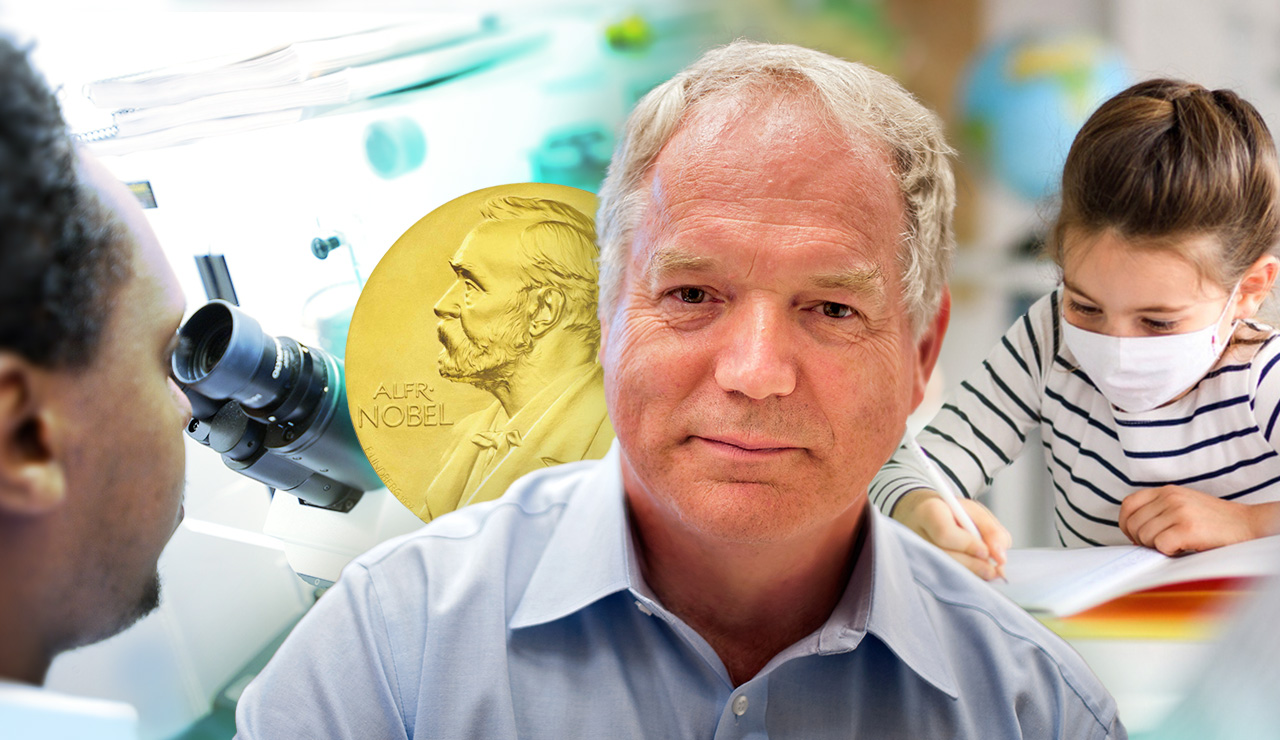The Faculty of Medicine & Dentistry's top 10 news stories of the year
By Ross Neitz - 18 December 2020

1. National Public Radio: 3 Scientists Win Nobel Prize For Hepatitis C Virus Discovery
Three scientists won the 2020 Nobel Prize in Physiology or Medicine for discovering the hepatitis C virus, which led to the development of a test to prevent the spread of the virus and drugs that have saved millions of lives. University of Alberta virologist Michael Houghton, Harvey Alter of the National Institutes of Health and Charles Rice, who is now at Rockefeller University, share the prize.
2. National Post: Ebola drug may be key to combating novel coronavirus: University of Alberta study
A drug developed to fight Ebola may be key in the battle against novel coronavirus, says a U of A study that shows why it is effective.
Researchers at the U of A’s Li Ka Shing Institute of Virology say a drug once used in an Ebola outbreak could help fight the novel coronavirus. Although there are regulatory hurdles related to getting samples of the coronavirus into the country, lab work has already begun, said Lorne Tyrrell, the institute’s director.
4. New York Post: New study finds cat drugs may fight COVID-19 in humans
Two coronavirus drugs used in cats might help humans infected with the novel coronavirus, according to a preliminary study led by U of A professor of biochemistry Joanne Lemieux that was published in the journal Nature.
5. CNN: In Canada, obesity will no longer be determined by weight alone
A group of Canadian physicians has issued new guidelines urging doctors in the country to take a new approach in the way they treat patients with obesity. The guidelines recommend that obesity be classified as a chronic illness that requires tailored treatment and long-term care. The authors, including U of A professor of medicine Arya Sharma, also encourage doctors to stop relying on body mass index alone when it comes to diagnosing their patients.
6. National Post: University of Alberta research team poised to cure diabetes—again
James Shapiro, professor of surgery at the U of A, discusses a new stem cell process that has been able to cure diabetes in mice and he is hopeful the process will translate to humans. "We're at the point where we can reliably manufacture insulin-producing cells from patients' blood who have Type 1 or Type 2 diabetes and we have been doing this now for the last several months in the lab."
A study led by U of A authors Christopher Picard (Faculty of Nursing) and Matthew Douma (Department of Critical Care Medicine) found that voice-activated virtual assistants are no replacement for calling 911 in health emergencies. The study, published in the journal BMJ Innovations, found these technologies generally provided poor responses to pressing medical and first-aid queries.
A new piece of medical equipment created at the U of A may give doctors a quicker and safer way to resuscitate patients who go into cardiac arrest due to COVID-19.
9. Ottawa Citizen: More than a third of kids with COVID don't show symptoms
Professor of medicine Finlay McAlister is interviewed about U of A research published in the Canadian Medical Association Journal showing that one-third of children who tested positive for COVID-19 had no symptoms, but in those who did, loss of taste/smell, headache, fever and nausea/vomiting were most strongly associated with positive cases.
Scientists, including the U of A’s Subhabrata Moitra, a post-doctoral fellow in the Division of Pulmonary Medicine, have found that a stricter bedtime could reduce the risk of youngsters getting asthma. Researchers studied almost 1,700 teenagers, with nearly one in 10 being self-confessed 'night owls'. These night owls were almost three times more likely to suffer allergic symptoms with a similar cause to asthma, such as sneezing and a runny nose.